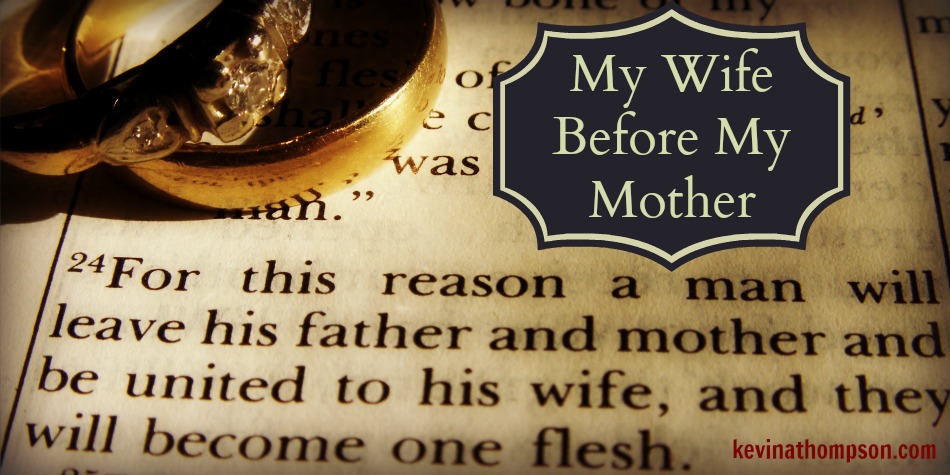Years ago we moved into a new house and my mom and grandparents moved in next door. During that first week we were having dinner at my house. At one point my grandmother, mom, wife, and daughter were all in the kitchen. As I was standing there, they all told me something I should do: get this, eat that, get more of this, get less of that, etc.
After listening, I jokingly said, “I love all four of you, but I’m only going to take orders from one of you.”
It was joke, but I was serious. (See: I Know Who Is In Charge of Your Family)
Living in close quarters (two in my house and two next door) to the four most important women in my life would be a tremendous blessing, but there was one great threat. If boundaries were not clearly drawn, confusion could exist.
While I loved all four women, my allegiance was not equally given to each of them. I loved them all, but my relationship with my wife trumped every other relationship.
In Matthew 19, Jesus quotes Genesis when speaking about marriage by saying, “For this reason a man will leave his father and mother and be united to his wife and the two will become one flesh.”
This verse reveals a key to marriage—especially for men. Both spouses have to “leave” their old family or a new family will not form.
To leave does not mean to disrespect or shun. It doesn’t diminish our love or call us to deny our past. (See: You Hurt My Feelings)
But it does mean life changes. Allegiances change. Responsibilities change. Priorities change.
When we say “I do” to our spouse, we are committing to put them above every other earthly relationship. We are drawing boundary lines upon which no one, including our families, can encroach.
When marriage occurs, parents and in-laws become friends and advisers, but they lose their authoritative roles.
When parents fail to realize this and spouses fail to demand this, trouble arises.
It’s a common story:
Kids get married but do not move toward financial independence from their parents.
Parents voice their opinions without being asked.
Disagreements within the marriage become debates within the family.
Kids air the dirty laundry of their spouses to their parents.
Parents become over-involved in deciding how grandchildren are raised.
All of this prevents a couple from forming their own marriage and leaves them enmeshed in their old families.
This is one reason living away from parents when a couple first gets married is a strength. It forces the couple to form their own identity apart from their parents.
Yet whether you are far away or next door, the process of leaving your family will require visible acts in which your new allegiance is displayed. (See: We Are Happy With Our Decision, Thank You)
No one ever misses Christmas at grandmas? Once you get married you might alternate which family gets to see you at Christmas.
Every baby boy of the family has the same name? That’s the case for your son if your wife agrees, but if she doesn’t, then another name will be chosen.
Your mother is “just that way?” She better not be “that way” to your wife or you will talk to her. (See: What Every Mother-in-law Should Know)
Your parents expect you to go to a certain church? Where you attend church is not their decision and they will be expected to respect your choices.
Lines must be drawn. Boundaries must be set. You are called to love your family, but you cannot allow them to sabotage your new family.
Since moving in next door, my grandparents have since died, but my mom still lives beside us. Many people have asked how that works and I always say, “It’s not for everybody, but it is great for us.” In my opinion, it is great for one reason—both my mom and wife are very boundary conscience. They know what is their responsibility and what isn’t.
By recognizing and respecting boundaries, we have been able to create a new family while still loving our old families.
I love the women in my life, but my responsibility to my wife trumps every other earthly relationship.




14 Responses to My Wife Before My Mother